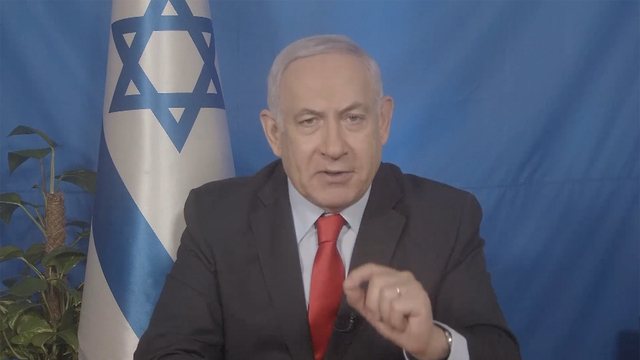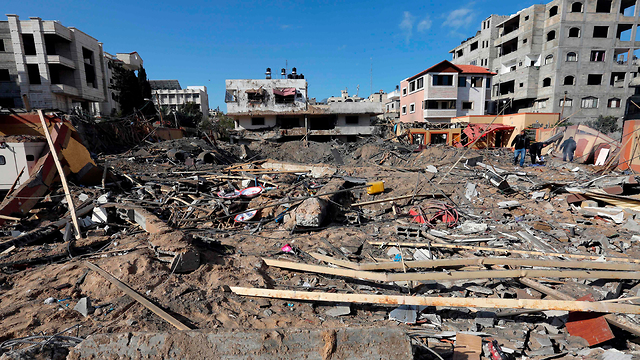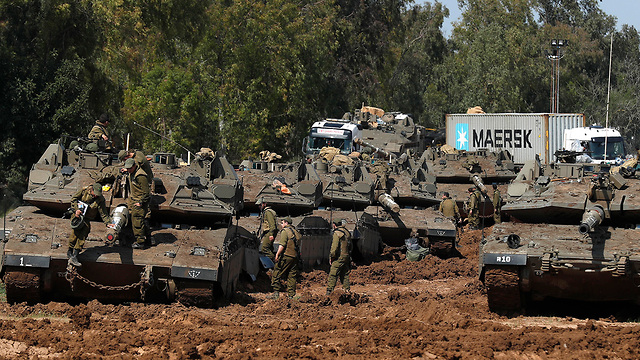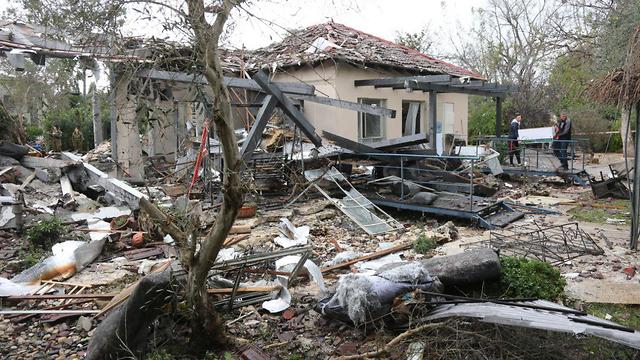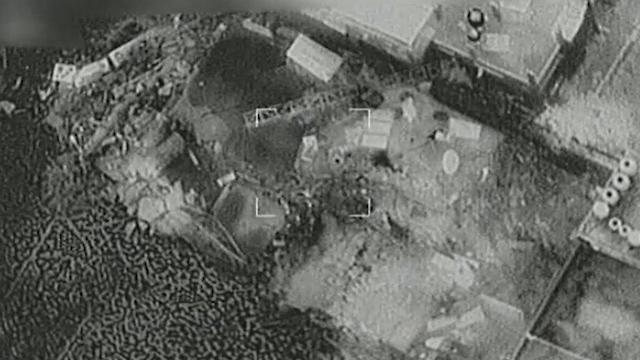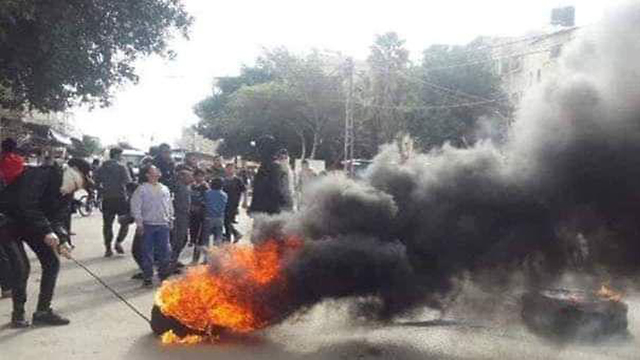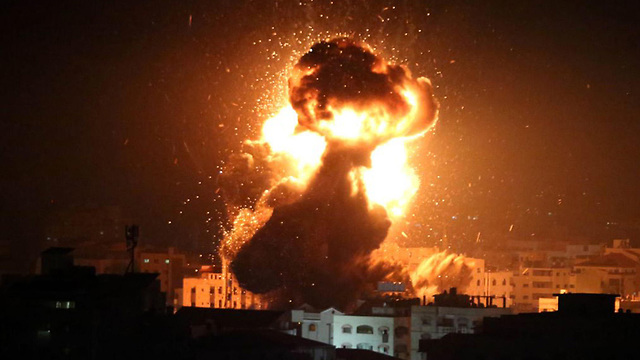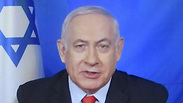

Netanyahu to AIPAC: Israel will do whatever is necessary to defend our people
In satellite address from Tel Aviv, PM tells pro-Israel lobby that Jewish state is 'prepared to do a lot more' after a night of punishing airstrikes against Hamas, Islamic Jihad in Gaza in wake of devastating rocket strike on central Israel home
Israel has pounded militant sites in Gaza on a scale not seen since the 2014 war and is "prepared to do a lot more," Prime Minister Benjamin Netanyahu told the annual conference of the US's biggest pro-Israel lobby via satellite from Tel Aviv on Tuesday.
Netanyahu had been due to appear in person at the AIPAC conference in Washington, but abruptly returned home to deal with the escalation of violence with Gaza's Hamas rulers after one of the terror group's long-range rockets struck a home in central Israel early Monday, wounding seven people.
Israel will "do whatever is necessary to defend our people and to defend our state," the prime minister told the conference.
The prime minister also took a dig at Democratic Representative Ilhan Omar, a freshman legislator from Minnesota, who posted a tweet in February that was widely seen as echoing an anti-Semitic slur that Jews influence governments through money.
"It's all about the Benjamins baby," Omar wrote, using a slang term for $100 bills. She subsequently apologized, saying she was grateful for "Jewish allies and colleagues who are educating me on the painful history" of anti-Semitic epithets.
Netanyahu revisited the controversy on Tuesday, when he hit back against any suggestion that US politicians are paid to support Israel.
"Some people will just never get it. They'll never understand why the vast majority of Americans - Jews and non-Jews alike - support Israel," he said without mentioning Omar by name.
"Take it from this Benjamin: it's not about the Benjamins," Netanyahu said. "The reason the people of America support Israel is not because they want our money, it's because they share our values."
Israel's retaliation
Overnight, the Israeli Air Force struck dozens of sites of Hamas and the smaller Islamic Jihad group.
The targets included a multi-story building in Gaza City that Israel said had served as a Hamas military intelligence headquarters and the office of Hamas leader Ismail Haniyeh. The Palestinians responded with dozens of rockets fired at Israeli communties close to the Gaza border.
Landing in Israel on Tuesday morning, Netanyahu headed straight into military consultations at the Defense Ministry headquarters in Tel Aviv.
Schools in southern Israel were cancelled following the violence that threatened to escalate into a major conflict just two weeks before the Israeli elections. The fighting subsided by Tuesday morning, but the situation remained tense.
Netanyahu has come under heavy criticism from both allies and opponents for what they say has been an ineffective policy of containing Gaza militants, with calls demanding he deliver a devastating blow to Hamas.
He has conducted indirect cease-fire talks through Egyptian mediators in recent months, and even allowed the delivery of millions of dollars of Qatari aid to Hamas to ease harsh conditions in the territory, which has been under an Israeli-Egyptian blockade since Hamas seized power in 2007.
After a meeting with President Donald Trump and before leaving Washington, Netanyahu indicated the election would not deter him from acting.
"We have responded very, very forcefully. Hamas needs to know that we will not hesitate to go in and take all necessary steps -- regardless of anything, any date, other than Israel's security needs," he said.
The cross-border fighting was triggered by a surprise rocket fired early Monday from Gaza that slammed into a house in central Israel and wounded seven people.
The Israeli military said it was a locally made rocket with a range of 120 kilometers (75 miles), making it one of the deepest strikes ever carried out by Hamas. The military mobilized two armor and infantry brigades and drafted some reserve forces before striking back at militant sites in Gaza.
Gaza's Hamas rulers announced later in the day that Egyptian mediators had brokered a cease-fire but the firing continued overnight before calm appeared to return early Tuesday.
Two weeks ago, rockets were fired from Gaza toward Tel Aviv, and the Israeli military struck back in a limited fashion. Hamas said the rocket fire was accidental and the fighting quickly subsided.
In Gaza, Hamas is facing perhaps its toughest domestic test since seizing control of the coastal territory from the rival Palestinian Authority 12 years ago.
Hamas has been leading weekly protests along the Israeli border for the past year in hopes of easing the blockade, but the demonstrations, in which some 190 people have been killed by Israeli fire, have done little to improve conditions.
Last week, hundreds of Gazans protested the dire conditions, a rare expression of public discontent against Hamas, which responded with a violent crackdown, beating and arresting dozens of demonstrators and drawing rare public criticism.
By limiting its fire to border communities after Monday's long-range launch, Hamas seems to be trying to keep the conflagration on low intensity. For Israelis living along the border who have suffered from years of rocket attacks that is little comfort.
"The Israeli government can't, under no circumstances, settle," said Haim Jellin, a Labor party candidate for the Knesset and a former head of the Gaza-area Eshkol Regional Council.
"Firing at Israeli communities that border with Gaza is the same as firing toward Tel Aviv, and it's impossible we will show restraint at the continuous firing."














